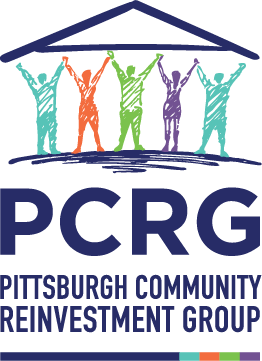Federal Updates
Tax and Spending Negotiations Face July 4 Deadline
The White House and congressional Republicans have set a July 4 deadline to pass a sweeping legislative package that includes provisions to make the 2017 Trump tax cuts permanent, introduce immigration reforms, boost military funding and enact significant federal spending cuts. This push comes as the U.S. Treasury is expected to announce a debt ceiling deadline in the coming weeks. The proposed tax legislation would extend provisions of the 2017 Tax Cuts and Jobs Act, which are set to expire at the end of this year. Nonpartisan analysts estimate that making these cuts permanent would cost $4.6 trillion over a decade. To offset the cost, Republicans and the Department of Government Efficiency (DOGE) are proposing $2 trillion in spending reductions, including cuts to social programs and green energy incentives such as the U.S. Department of Housing and Urban Development (HUD) affordable housing, Head Start, and Health and Human Services.
PCRG’s federal legislative priorities, the Affordable Housing Credit Improvement Act (AHCIA) and the Neighborhood Homes Investment Act (NHIA), could be included in the final package.
Trump’s 2026 Budget Proposal
On May 2, President Trump unveiled his administration’s fiscal year 2026 budget proposal, marking a significant shift in federal spending priorities. The plan calls for a $163 billion reduction in non-defense spending — a 22% cut — while increasing defense and homeland security budgets.
Department of Housing and Urban Development (HUD):
$6.2 billion budget reduction, approximately 13.2% of HUD's total budget.
Elimination of programs, including the Community Development Block Grant (CDBG), HOME Investment Partnerships, Choice Neighborhoods, and Section 4 Capacity Building grants.
Cuts to tenant-based rental assistance could result in the loss of over 330,000 housing vouchers, increasing the risk of eviction and homelessness.
84% reduction in staff at HUD’s Office of Community Planning and Development, potentially delaying funding disbursement for affordable housing and homelessness programs.
Community Development Financial Institutions (CDFI) Fund:
Complete elimination of funding for the CDFI Fund, which supports community-based financial institutions serving low-income and underserved communities.
Congress must now craft and negotiate appropriations bills that fund the government for FY 2026. While the President's budget outlines his policy priorities, it is not binding. Be on the lookout for advocacy opportunities with Congress to push back against these proposed cuts.
State Updates
Public Transit Crisis Looms Without State Action
Pittsburgh Regional transit (PRT) faces a $117 million annual shortfall that could lead to a 35% reduction in service and fare increases, disproportionately impacting low-income residents, students, and essential workers. PRT has already tapped $50 million from its reserves this year.
Public comments are accepted through June 18. Make Your Voice Heard!
Several state legislative proposals have emerged to address this issue, including:
Creating a regional transit authority
Increasing rental car taxes to fund public transit
Exploring the privatization of transit fleets
The state budget must be finalized by June 30. Local
Allegheny County Primary Elections: Deadlines and Key Races
Election Day: Tuesday, May 20 | Polls Open: 7:00 AM – 8:00 PM
Voter Registration Deadline: Monday, May 5 at 5:00 PM
Find your polling place and know what to bring.
Pittsburgh Mayoral Race: Incumbent Faces a Strong Challenger
The Democratic primary features incumbent Mayor Ed Gainey, seeking a second term, and Corey O’Connor, current Allegheny County Controller and former City Council member. The race has centered on:
Housing affordability
Public safety
Economic opportunity
It has also drawn attention for outside spending from third-party independent expenditure groups and SUPER PACs.
On the Republican side, candidates include:
Tony Moreno, retired police officer and 2021 mayoral nominee
Thomas West, a Lawrenceville business owner
Judicial Elections: 8 Open Seats + Retention Votes
Voters will nominate candidates for eight open seats on the Allegheny County Court of Common Pleas, with 22 confirmed candidates. Voters will also decide on retaining seven sitting judges. These elections are significant, as Common Pleas judges oversee criminal cases, civil disputes and family court matters.
Other Local Races
Primaries will also determine nominees for several other local offices, including:
Allegheny County Council
Pittsburgh City Council
Pittsburgh Public Schools Board positions
Voting information
Early Voting:
Dates: May 10–11
Time: 9:00 AM – 5:00 PM
Location: Designated satellite offices
Ballot Return Sites:
Dates: May 16–19
Time: 11:00 AM – 7:00 PM
Visit the Allegheny County Elections website for more information on voter registration, polling places, and sample ballots.

